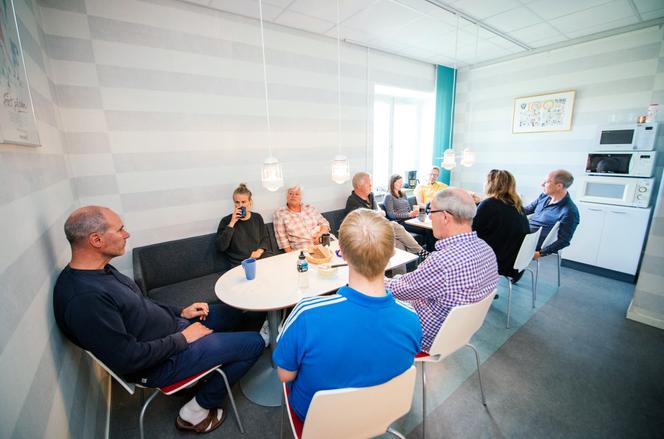


Everywhere in Sweden, in offices and factories alike, the fika break is sacrosanct. In general, everyone stops work first at around 9:30 am, then again at 2:30 pm, for a coffee break with colleagues. In some companies, these get-togethers are more spontaneous but everyone ends up in front of the coffee machine, culminating in the fredagsfika: the Friday coffee break, when they linger longer over pastries.
But since the beginning of the year, the fika has been in turmoil, following the publication of an article in the communal workers' newspaper Kommunal arbetaren on January 3, revealing that there is now a charge for the coffee in some local authorities. Worse still, some communes and regions reportedly differentiate between socio-professional categories. In the regions, for example, 94% of civil servants are entitled to free coffee, compared with just 75% of care assistants.
In some municipalities, employees are asked to fill in a questionnaire when they are hired: If they declare that they like coffee, their salary is automatically cut by a few dozen crowns (a few euros) each month. The Stockholm region has gone even further: Just before Christmas, employees in the health sector learned that they would no longer be entitled to the equally traditional fruit basket, which usually sits next to the coffee machine.
According to the Dagens Nyheter newspaper, which broke the story on January 11, the internal memo sent out by the Health Department listed a number of products that were not considered "essential for the production of care" and would therefore no longer be covered. Alongside the fruit basket was the fikabröd (literally "fika bread," which refers to pastries served with coffee).
These penny-pinching savings reflect a calamitous economic situation for local authorities. In 2023, all 21 regions and a third of Sweden's 290 municipalities ended the year with their finances in the red, according to local government association SKL. And 2024 is set to be even worse, with the deficit rising from 6 billion kronor to 31 billion (from €530 million to €2.75 billion). The reasons for this are inflation and rising interest rates, as well as an increase in needs, particularly in the healthcare sector and care for the elderly.
In September 2023, the liberal-conservative government, backed by the far right, announced a 10 billion kronor boost for local authorities. But this will not be enough to avoid the painful restructuring announced for public services. Schools all over Sweden are seeing their budgets reduced, while Gothenburg's Sahlgrenska hospital, which expects to run a deficit of 1.7 billion crowns between 2023 and 2024, estimates that it will have to lay off 2,000 of its 17,000 employees if it hopes to break even.
Translation of an original article published in French on lemonde.fr; the publisher may only be liable for the French version.
